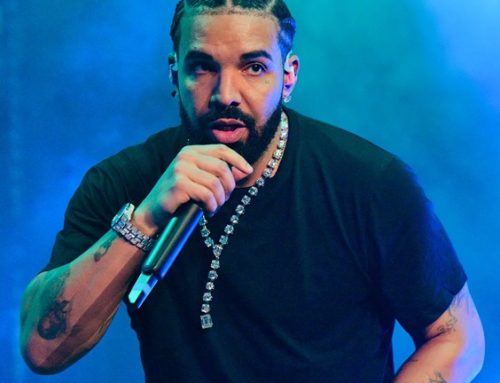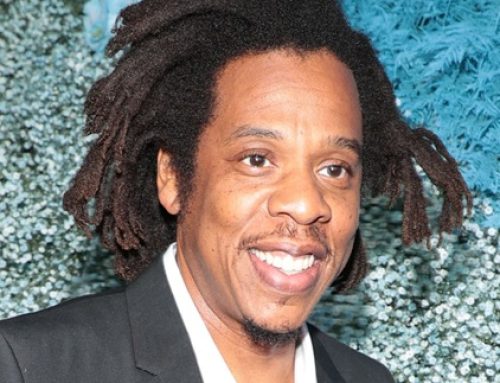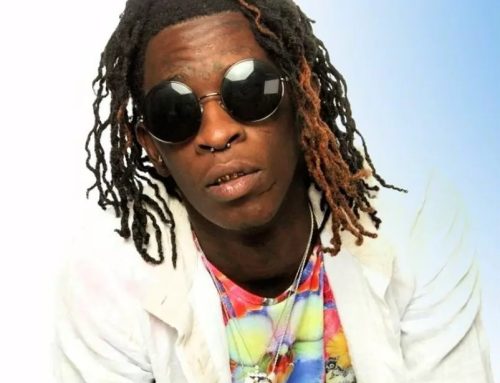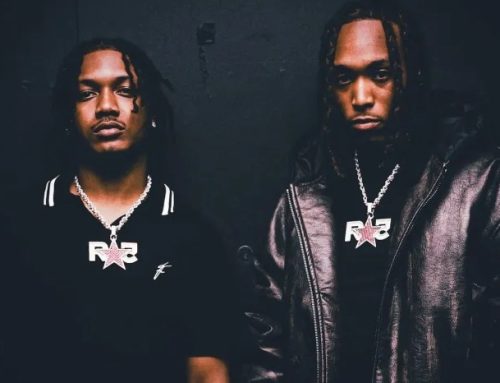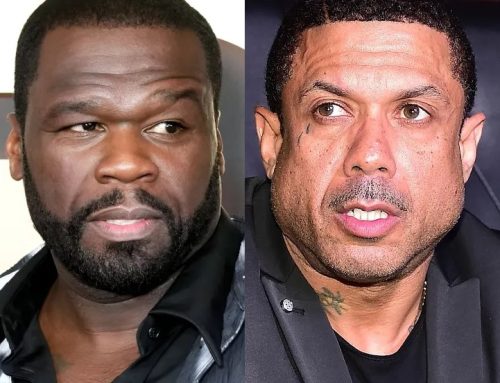“It’s a never-ending saga for the people who really live in it,” the hip-hop superstar says of the police brutality depicted in his Grammys showcase.
On June 12, 2020, Rayshard Brooks, a 27-year-old Black man and Atlanta native, was shot and killed by a police officer after falling asleep in his car outside of a Wendy’s restaurant. Earlier on June 12, Lil Baby, the biggest star in Atlanta hip-hop right now, had released “The Bigger Picture,” a raised fist in the Black Lives Matter movement following the police killing of George Floyd weeks earlier, and Baby’s most socially conscious song to date.
At the Grammys on Sunday night (Mar. 14), the world witnessed Lil Baby’s full vision for “The Bigger Picture,” with an expansive performance that opened with a re-creation of the Brooks killing. Before the rapper launched into the song, actor Kendrick Sampson was woken up in his car, tackled and eventually shot down by two white police officers, as a Wendy’s loomed in the background and James Baldwin’s words soundtracked the havoc. On a night full of celebrations and flashy set pieces, Lil Baby’s performance was an emotional gut-punch planned across multiple months and designed to viscerally recall the horror of the Brooks killing.
“I wanted to use a specific situation that would give people an understanding of where I come from,” Lil Baby tells Billboard the day after the Grammys. “I didn’t really want to use the George Floyd or Breonna Taylor [killings] or something. I wanted to use something that stood by me. That happened in Atlanta, and I live in Atlanta, and I’ve been in some of those same exact situations.”
After “The Bigger Picture” became Lil Baby’s then-highest-charting hit on the Hot 100 chart, peaking at No. 3 last June, the song helped define the explosion of protest music last summer in conjunction with the nationwide marches against racial injustice, and later scored Grammy nods for best rap song and best rap performance. Lil Baby says that he and Pierre “P” Thomas, CEO of Quality Control Music, had been conceptualizing the performance — which also involved Molotov cocktails, activists squaring off against a police barricade, Killer Mike stopping by for a guest verse and activist Tamika Mallory delivering a spoken-word interlude – throughout 2020, considering the showcase for other awards ceremonies but deciding to save it for Grammy night.
“We’ve been thinking about this since last summer,” Thomas tells Billboard. “Black communities have been dealing with police brutality for generations and I wanted to show the reality. When Rayshard Brooks was gunned down in Atlanta – in our backyard — it hit hard. We wanted to show these situations to a wider audience.” Thomas adds that the performance required “months of preparation and rehearsal,” and credits Lil Baby, Grammys producer Jesse Collins, executive producer Ben Winston and the entire Quality Control brain trust (Fatima Robinson, Coach K, Ethiopia Habtemariam, Twin, Brian Nolan and Britney Davis) for helping to see it through.
Lil Baby describes fellow Atlanta native Killer Mike, who performed a verse from the Run The Jewels tracks “Walking In The Snow” during the performance, as “a person I look up to as a mentor,” and a natural fit for the showcase. Meanwhile, Mallory was brought in by Collins, creative director Fatima Reynolds and Thomas; the latter describes the prominent Black Lives Matter activist as “a brave Black woman who stands up for what she believes in.”
Because Lil Baby taped his showcase a few days before the Grammys — shutting down the area outside of the Staples Center in Los Angeles for the nighttime setup — the rapper was able to enjoy Grammy night (although “The Bigger Picture” lost in both of its categories) and watch his performance alongside the rest of the stars on hand. Baby tweeted about meeting Jay-Z for the first time at the ceremony, and says the next day, “I’m really not that fond of meeting other celebrities, but Jay-Z is a guy who I look up to, and look up to the way he moves and the things that he’s done. I see myself following in his footsteps.” Baby also brought his mother to the ceremony, and says, “She was a little mad that I didn’t win a Grammy, but she had fun.”
Nearly 24 hours after the performance, Lil Baby says that it’s gotten the biggest online reaction out of anything he’s ever done at an awards show — and he’s hopeful that such a reaction helps reminds America not to get complacent in the fight against racial injustice. Months after “The Bigger Picture” was released, the protests that the song helped soundtrack have died down, but the problems that they confronted have not disappeared. It’s the reason why Mallory’s address toward the new administration during the performance (“President Biden, we demand justice, equity, policy, and everything else that freedom encompasses,” she said) became one of its crucial moments.
“It’s a never-ending saga for the people who really live in it,” says Lil Baby, “but to the world … stuff like that dies down when no one’s talking about it. But me, I’m a person who really has family members who’ve been killed by the police. I really have friends in prison for the rest of their lives for things that they didn’t do. I’m really a part of that outside of music, when I’m not on stage, when I’m at home. That’s my everyday life. I talk to my people in prison, I’m spending millions of dollars on lawyers to get my people out of a messed-up system.
“It’s way bigger than just a song to me,” Baby continues. “It doesn’t die down for me when the world is not rioting or talking about police brutality or the whole problematic system. I’m still thinking about it — it’s still something that I gotta face. I’m still that same guy who could fall asleep in my car one night, and I could wake up to police in front of me. I’ve been in those types of situations, and thank God I never lost my life in any of them.”


